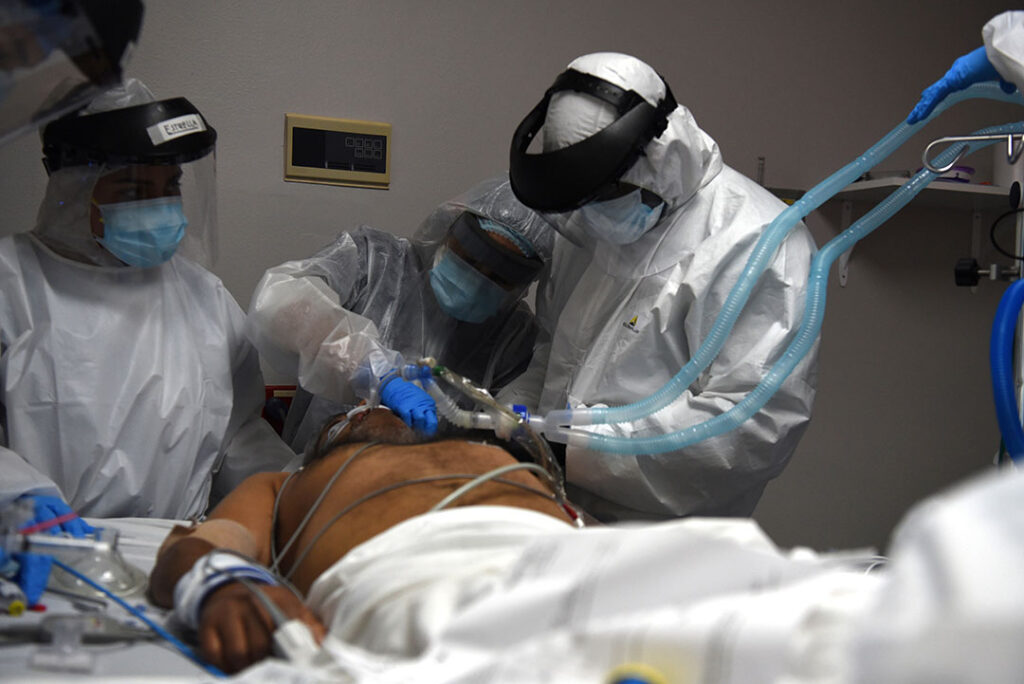ADF STAFF
Glimmers of hope in the battle against COVID-19 have emerged in the past month, as a clinical trial at the United Kingdom’s University of Oxford showed that a low-cost steroid can be used to improve the mortality rates of patients with severe respiratory complications related to the virus.
The trial study showed that dexamethasone could reduce by one-third the deaths of patients requiring ventilators and by one-fifth among those who only require oxygen, the scientific journal Nature reported. The 2,104-patient trial showed there was no benefit for those who required no respiratory assistance.
“Dexamethasone is the first drug to be shown to improve survival in COVID-19. This is an extremely welcome result,” Peter Horby, professor of emerging infectious diseases at Oxford and one of the trial’s chief investigators, said in a statement.
“The survival benefit is clear and large in those patients who are sick enough to require oxygen treatment, so dexamethasone should now become standard of care in these patients,” he said. “Dexamethasone is inexpensive, on the shelf, and can be used immediately to save lives worldwide.”
The use of humidified high-flow nasal oxygen (HFNO) also was recently shown to improve survival rates for some patients, Marc Mendelson, professor of infectious diseases at the University of Cape Town in South Africa, wrote on South Africa’s News24 website. HFNO is being used in the general wards and intensive-care units of South African hospitals.
In early July, scientists learned that almost 90% of COVID-19 patients who lose their sense of smell or taste no longer have those symptoms after four weeks. The results of that study of 202 mildly symptomatic adults at Treviso Regional Hospital in Italy were published by the Journal of the American Medical Association.
Other recent studies led to more sobering discoveries.
Besides damaging the heart, lungs and kidneys, COVID-19 was linked to neurological complications including dementia, brain inflammation, stroke and nerve damage, according to researchers at University College London (UCL) and University College London Hospitals.
A study of 43 patients at London’s National Hospital for Neurology and Neurosurgery showed that 10 people experienced dementia, 12 patients suffered rare brain inflammation, eight patients had strokes and eight others developed nerve damage.
Those findings “did not always correlate with the severity of respiratory symptoms,” Michael Zandi, a senior author of the study, said in a story on UCL’s website. “We should be vigilant and look out for these complications in people who have had COVID-19. Whether we will see an epidemic on a large scale of brain damage linked to the pandemic … remains to be seen.”
Studies from the U.K., Italy and France also have shown that COVID-19 can cause a multisystem inflammatory syndrome in children, an unusual, serious condition. The main symptoms are fever, rash, vomiting and other abdominal issues, but it also can lead to heart complications, according to The Conversation, a nonprofit digital news source featuring content by academics and researchers.
Recently, 200 scientists from across the globe said studies show that tiny droplets containing the virus known as aerosols can hang in the air for long periods and float dozens of feet. That is potentially dangerous in poorly ventilated areas, even when people practice social distancing, the scientists argued.
This contradicts earlier guidance from world health bodies. Since the outbreak began, the prevailing wisdom was that people primarily need to worry about transmitting the virus by inhaling respiratory droplets from an infected person or when somebody touches their eyes, nose or mouth after touching a contaminated surface.
As of mid-July, COVID-19 has sickened more than 14.7 million and killed more than 610,000 globally since it emerged in Wuhan, China, in December 2019.

